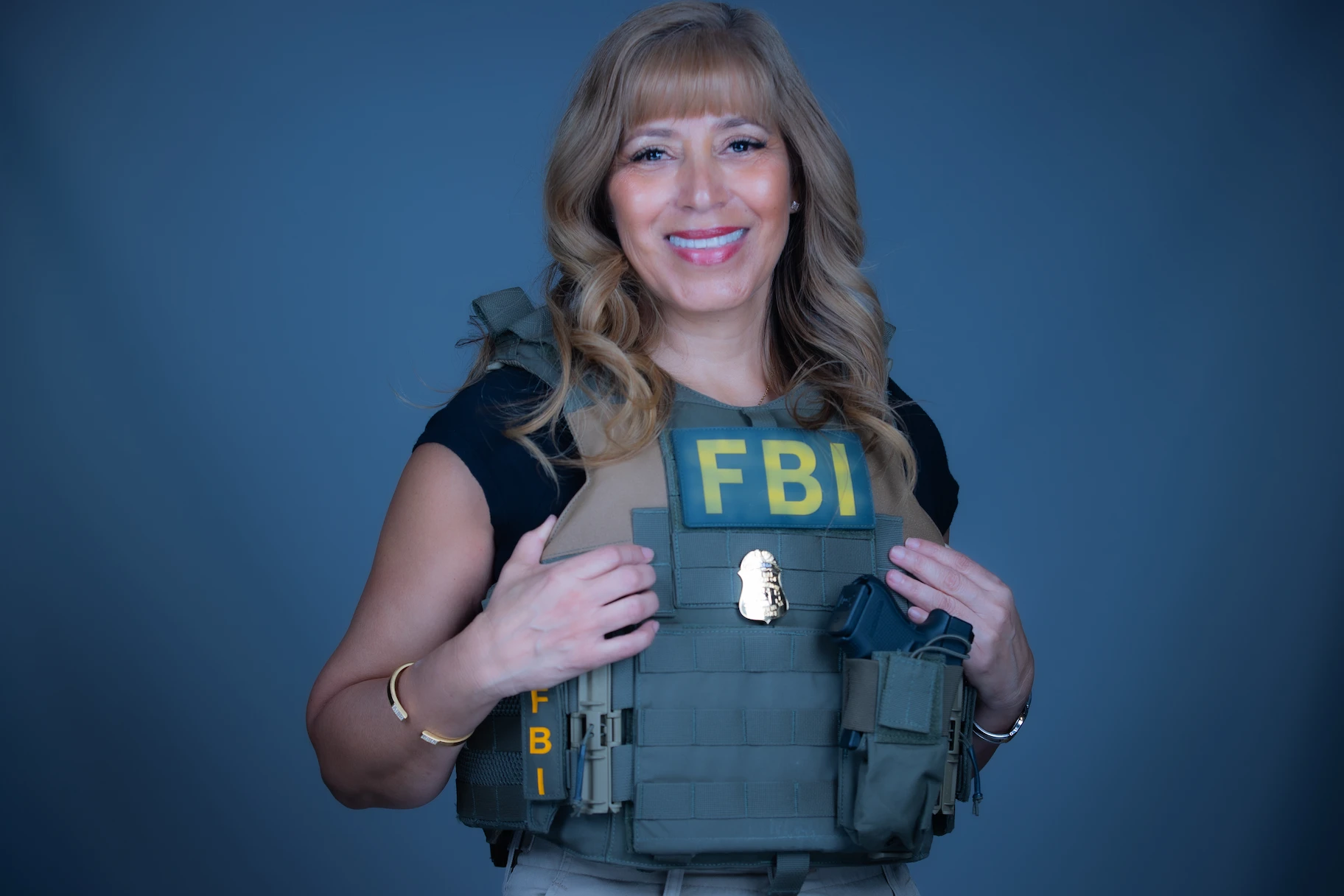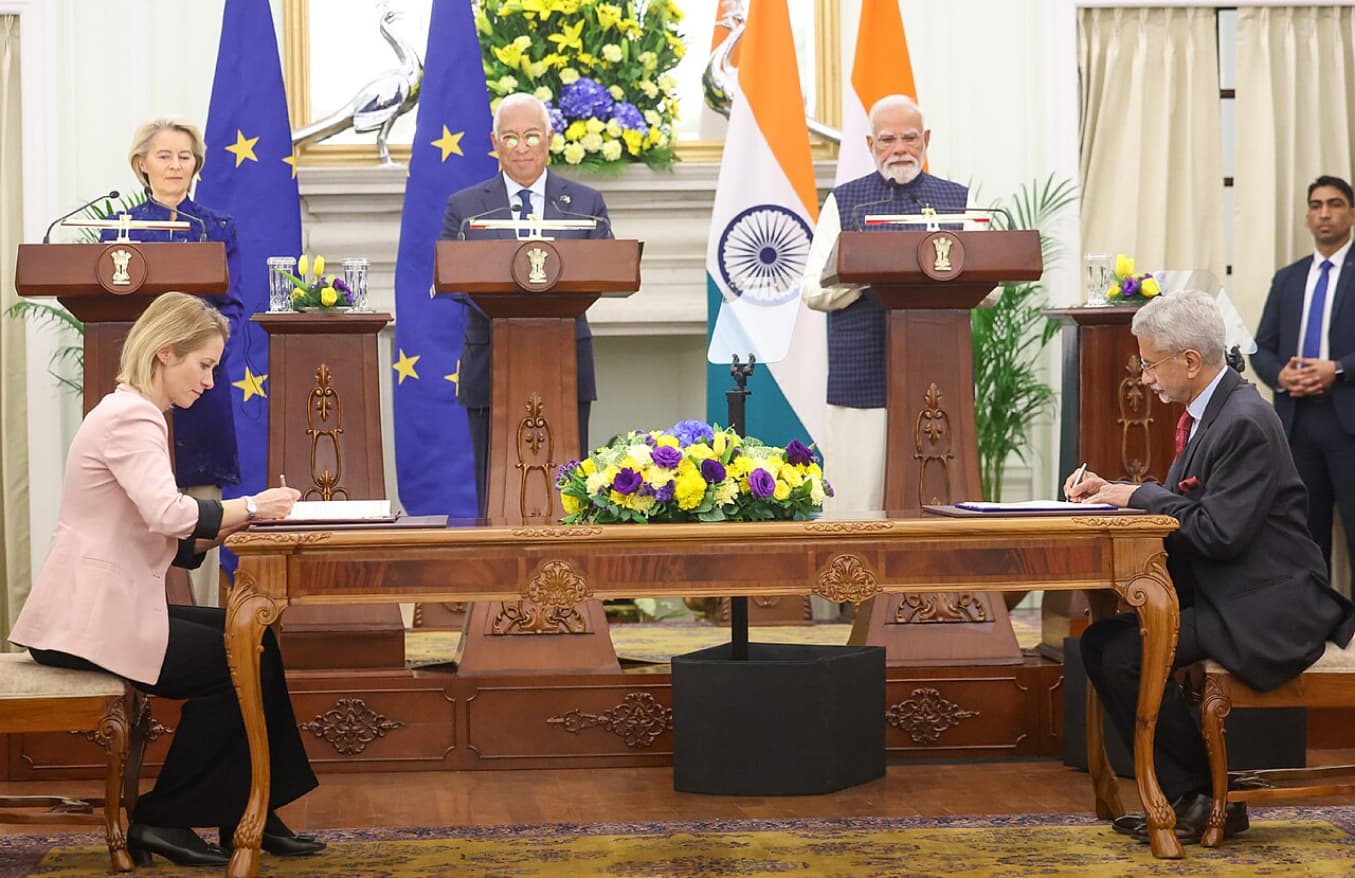Justice has many faces, but few embody it with the unwavering dedication and quiet strength of those who spend their lives in pursuit of truth. In the corridors of federal law enforcement, where split-second decisions can mean the difference between life and death, there exists a rare breed of professionals who combine tactical expertise with emotional intelligence, investigative prowess with human compassion. Rita Fragoso represents the very best of this tradition.
After more than two decades of distinguished service with the Federal Bureau of Investigation, Fragoso has left an indelible mark on federal law enforcement. Her journey from the youngest of eight children in a widowed household to becoming a respected FBI Special Agent reads like a testament to the power of determination, but her story runs deeper than personal triumph. It’s about the evolution of leadership in law enforcement and the critical role that emotional intelligence plays in modern investigative work.
The Making of an Agent
The path to the FBI wasn’t a straight line for Fragoso. Growing up as the youngest of eight children, raised by a widowed mother on what she describes as “the wrong side of the tracks,” she might have seemed an unlikely candidate for federal law enforcement. Yet from an early age, she found herself naturally stepping into the role of protector, standing up for those who needed support and speaking out when something didn’t feel right.

This work isn’t just about what’s on your resume—it’s about who you are when no one’s watching
The spark that would ignite her career came through family influence. When her older sister joined the Schenectady New York Police Department, Fragoso witnessed firsthand what it meant to serve with dedication and pride. “Watching her put on that uniform, serve her community with dedication, and carry herself with strength and pride made it real for me,” Fragoso reflects. “It wasn’t a dream anymore. It was something real and attainable.”
But Fragoso set her sights higher than local law enforcement. She was drawn to the FBI specifically because it represented the pinnacle of professional standards. “I knew I didn’t want to just serve in law enforcement. I wanted to be part of the very best,” she explains. “The FBI represents the highest standards of justice and public service, and I was committed to earning the opportunity to be part of that mission.”
The doubts of others only fueled her determination. When a teacher suggested she choose a more “realistic” career, it didn’t discourage her. Instead, it awakened her competitive spirit. “That lit a fire in me,” she recalls. “It didn’t discourage me. It challenged me. It awakened my competitive side and solidified my determination.”
Confronting the Darkest Realities
The transition from training to fieldwork brought Fragoso face to face with the harsh realities of criminal investigation. One of her earliest cases, a homicide involving a woman who had been tortured and buried alive, would shape her approach to investigative work for the rest of her career.
“The suspect was in custody and gave us the location, so it quickly became a race against time,” she remembers. “We were hoping to find her alive. But when we got to the shallow grave and started digging, we were too late. She was already gone.”
The impact of encountering her first crime scene was profound, but Fragoso approached it as a learning opportunity. She absorbed every detail at the scene and later attended the autopsy, where the medical examiner shared practical insights that no textbook could provide. “That case taught me to balance empathy with professionalism,” she explains. “It showed me that every piece of evidence tells a story, and that my job is to find every piece of evidence and make it count.”
This early experience established a pattern that would define her career: the ability to maintain emotional equilibrium while processing traumatic situations, extracting maximum value from each case as both an investigator and a leader.
Mastering High Stakes Operations
As Fragoso’s career progressed, she developed expertise in some of the FBI’s most demanding specializations: undercover operations and crisis negotiations. Both require exceptional mental and emotional preparation, but each demands a different kind of psychological discipline.

“For me, preparing mentally and emotionally for high-stakes situations always began well before the moment of action,” she explains. “I knew that maintaining clarity and emotional control wasn’t optional. It was essential.”
In crisis negotiations, she learned to regulate her emotions, sharpen her listening skills, and think clearly even when time was limited and tensions were high. Undercover work presented different challenges, requiring her to manage fear, stay alert, and adapt under pressure without losing sight of the objective or her own identity.
The common thread in both specializations was what she describes as “a constant connection to the mission, confidence in my training, and a deep commitment to protecting those I served.” This mindset kept her steady regardless of the operational demands.
Leading Through Complexity
As Fragoso advanced in her career, she increasingly found herself leading investigative teams at active crime scenes. These leadership roles brought unique challenges that went beyond the technical aspects of investigation. Managing both the physical integrity of crime scenes and the political dynamics that inevitably surrounded high-profile cases required a delicate balance.
“It was common for individuals with no operational role to try and enter the scene, not to assist, but simply to observe,” she notes. “Maintaining the integrity of the evidence while enforcing strict scene control required constant vigilance and firm, respectful communication.”
Perhaps more challenging was navigating input from executive management. “I had to balance respect for the chain of command with the responsibility to protect the investigation, often by explaining our strategy clearly and professionally,” she explains.
One incident that truly tested her leadership skills involved responding to a major case with three separate, interconnected crime scenes that were simultaneously active. Arriving with only one team, she had to quickly call in additional units and delegate leadership roles for each scene while coordinating the overall operation. Simultaneously, she managed media presence and executive involvement to ensure proper information flow without compromising the investigation’s integrity.
“It was a high-pressure situation that required decisive action, effective delegation, and strong communication on all fronts,” she recalls. The incident exemplified the kind of complex, multi-dimensional challenges that define senior-level FBI work.
The Art of Human Intelligence
Throughout her career, Fragoso developed particular expertise in interviewing, interrogation, and source development. Her approach to these critical investigative tools was rooted in understanding human psychology rather than applying pressure.
“My training in interviewing and interrogations has taught me that effective intelligence gathering isn’t about applying pressure. It’s about building rapport, earning trust and connection,” she explains. “I learned to listen with intention, pick up on what’s not being said, and create an environment where people feel safe to open up.”
Source development, a critical element of FBI work, requires an even more nuanced approach. “The foundation of human intelligence is trust, and that trust is built slowly through consistency, respect, and discretion,” Fragoso notes. “To develop a source, you have to take the time to understand what drives them: their motivations, their fears, and what they value.”
Her philosophy emphasizes authenticity over manipulation. “The more genuine you are, the more likely they are to open up. People can sense insincerity right away.” But she also emphasizes the importance of maintaining professional discipline: “Build trust, but never stop vetting the information.”
Emotional Intelligence as a Leadership Tool
What sets Fragoso apart as a leader is her recognition of emotional intelligence as a critical operational skill. In the high-pressure environment of federal investigations, the ability to manage both personal stress and team dynamics can determine the success or failure of complex operations.
“Emotional intelligence has played a central role in my leadership, particularly during high-pressure federal investigations,” she explains. “These cases often come with long hours, tight deadlines, and emotionally charged moments. I’ve learned to manage my own stress in order to stay clear-headed and lead effectively.”
Equally important is her attention to team dynamics. “I stay attuned to my team, checking in, reading the dynamics, and making adjustments when needed. Being present and emotionally aware not only helps maintain team morale, but also drives stronger performance when it matters most.”
This approach represents an evolution in law enforcement leadership, moving beyond traditional command-and-control models toward a more sophisticated understanding of human performance under stress.
Building a Legacy of Excellence
As Fragoso reflects on her 21-year career, she expresses a deep sense of fulfillment. “This role tested me in every possible way: mentally, physically, and ethically. In doing so, it shaped not only the professional I became, but the person I am today.”
Her pride centers not just on successful cases but on the broader impact of her leadership. “What I value most isn’t just the cases. It’s the trust I earned, the teams I helped shape, and the culture of professionalism and accountability I worked to build.”
The commitment she brought to the role was total. “This job demanded everything I had, and I can proudly and honestly say I gave it without hesitation. That commitment, and the legacy of trust and leadership I leave behind, is what I’m most proud of.”
Continuing the Mission in Retirement
Retirement hasn’t meant stepping away from service for Fragoso. Instead, she has found new ways to contribute to the law enforcement community through mentoring and consultation.
“One of the most meaningful ways I continue to share my experience is through mentoring,” she explains. “I’ve had the privilege of guiding young professionals who aspire to serve in the FBI or other law enforcement agencies. It’s incredibly rewarding to help them prepare not just for the technical demands of the job, but for the ethical and personal responsibilities that come with the badge.”
Her approach to mentoring reflects the same emotional intelligence that defined her operational career. She serves as a sounding board for active agents and other law enforcement professionals, offering perspective grounded in decades of hands-on experience.
“The lessons I learned about leadership, judgment, and resilience don’t retire when you do,” she notes. “So while I’ve stepped away from active duty, I still feel connected to the mission and the people, just in a different capacity.”
Lessons for Future Generations
For young professionals aspiring to federal law enforcement careers, Fragoso offers practical advice rooted in her own experience. “If you’re serious about serving with the FBI, start preparing now: mentally, physically, and in the way you carry yourself,” she counsels. “Stay disciplined, continue learning, and protect your reputation.”
Her emphasis goes beyond technical qualifications to character development. “This work isn’t just about what’s on your resume. It’s about who you are when no one’s watching. Integrity matters on and off the clock.”
The advice reflects her understanding that federal law enforcement is as much about personal character as professional competence. “Stay sharp, stay grounded, and remember that being trusted is just as important as being qualified. That kind of trust starts with the choices you make every day.”
Reflections on a Life of Service
Looking back, Fragoso expresses few regrets about her career path. If she could return to the beginning, she wouldn’t change the direction she took, but she would approach it with greater mindfulness.
“I wouldn’t change the path I took, but I would be more intentional along the way,” she reflects. “I would take more time to appreciate the moments, learn from every experience, and fully embrace the journey rather than always focusing on the next task or goal.”
Her advice to her younger self speaks to a broader truth about career development: “Growth doesn’t just come from the big milestones, but from being present in the day-to-day.”
A Standard of Excellence
Rita Fragoso’s career represents more than individual achievement. It embodies an evolution in federal law enforcement toward a more sophisticated understanding of leadership, human intelligence, and investigative excellence. Her integration of tactical skills with emotional intelligence, her commitment to mentoring and development, and her unwavering dedication to ethical standards set a benchmark for future generations of federal agents.
In an era when law enforcement faces unprecedented challenges and scrutiny, Fragoso’s approach offers a roadmap for professional excellence that honors both the traditions of federal service and the evolving demands of modern investigative work. Her legacy lies not just in the cases she solved or the operations she led, but in the standard of leadership she established and the agents she influenced along the way.
The badge may be retired, but the commitment to justice continues. Through mentoring, consultation, and the example she set throughout her career, Rita Fragoso remains an active force in the ongoing mission to protect and serve. Her story reminds us that true leadership in law enforcement isn’t just about enforcing the law—it’s about embodying the principles of justice, integrity, and service that make the law worth enforcing.






